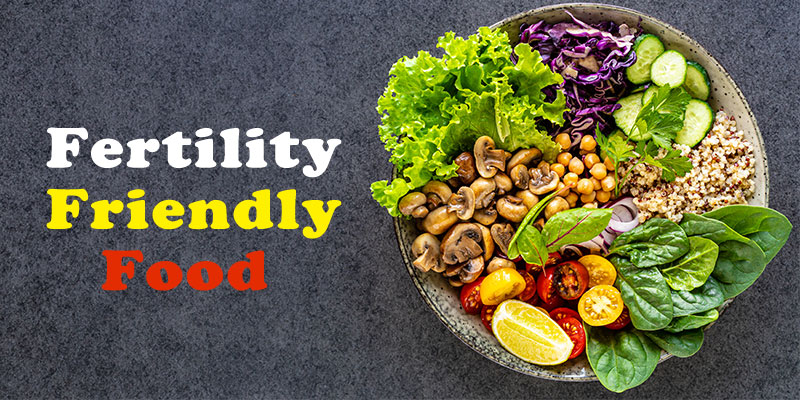What we put into our bodies has a profound impact on our health, well-being and fertility. “Food as medicine” is a long-standing concept in our Indian scriptures as well as western medicine. Food can positively or negatively affect gamete production, hormonal balance, uterine health, pregnancy and baby’s development.
No “one diet” can cure infertility as dietary needs and goals are different for every individual. However it can be an add-on to the ongoing fertility treatment and overall fitness.
A balanced meal mainly should comprise of carbohydrates and adequate fibre (whole/ complex, slow- digesting carbs), natural proteins, healthy fat (Mono/Poly unsaturated fats), vitamins and minerals (though in trace amounts, are vital for body’s fitness and functioning), antioxidants (important for toxic elimination, mainly carcinogenic free radicals)
Vitamins: Have antioxidative properties; improve sperm count, quality and motility, hormonal balance, gamete maturation
- Vit C – Citrus fruits like oranges, lemons, tomatoes, kiwi; cauliflower, broccoli, peas
- Vit E – Nuts, seeds, leavy veggies, avocado, papaya
- Vit D – Sunlight, D3 supplements, cod liver oil, salmon, egg yolks, milk
- Vit B12, B6, B9 – Milk + products, supplements, leafy veggies, lentils/pulses, eggs, chicken
Minerals: Maintaining DNA health of the gametes, gamete maturation, reduce miscarriage risk
- Zinc – Meat, fish, seeds, nuts, lentils, eggs, dark chocolate
- Selenium – Tuna, chicken, paneer, mushroom
- Iodine – Dairy, shrimp, iodised salt
- Iron – Leafy veggies, chicken, dry fruits, beetroot, seeds
Omega 3: Improves blood flow to uterus, increase cervical mucus, improve semen volume Salmon, cod liver oil, walnuts, seeds
Coenzyme Q10: Energy generation for gamete development and maintenance Pistachios, chicken, sesame seeds, olive oil, avocado
A balanced fertility diet is incomplete without adequate hydration. Water helps in improving blood circulation, hormone regulation and toxin removal. It can also be taken in the form of green tea or lemon water with chia seeds/ mint.
PCOS diet: High fibre, complex carb diet (fresh fruit, whole grain), lean proteins (chicken, fish), good fats (nuts, avocado) to manage blood glucose and insulin levels in turn keeping other hormonal levels in check. Avoid baked products, high sugar items.
Diet is an imperative component of pregnancy as it directly affects the baby’s health. Adequate folic acid supplementation and levels are essential to prevent certain spine and brain defects in the baby. Iron, omega 3 and calcium are important for baby’s body systems’ development and oxygen delivery.
Foods to reduce/avoid:
- Refined carbs – fast-digesting, processed carbs (baked products, white bread/white rice, breakfast cereals, colas) increase risk of PCOS, sperm DNA damage, sperm motility reduction, diabetes, obesity.
- Processed food – fried food, ready-to-eats, packet foods (have trans-fat, preservatives, artificial colours/flavors), processed meats (with artificial hormones), pesticide-laden veggies cause hormonal imbalance and affect gametogenesis.
- Raw meat, unpasteurized milk increase risk of miscarriage. Some fish with high amounts of mercury can affect sperm count, estrogen levels in women and cause birth defects in the baby.
- Alcohol and caffeine – Alcohol affects sperm count, sperm DNA damage, birth defects in the baby in early pregnancy. Caffeine increases miscarriage risk.
The good food habits and proper nutrition must become a part of the daily routine. Simple switches like home-cooked meals, healthier binging alternatives, reduced portion size, eating every 2 hours can do wonders for fertility. However, any dietary change should be done under the guidance of an expert nutritionist and fertility specialist.
Lifestyle modification in terms of exercise, sleep and stress reduction also play a part in helping fertility along with dietary improvement.
Femcare fertility provides holistic care to couples and is thus the best infertility clinic in Pune. For provision of best infertility treatment, we encourage healthier lifestyle and food choices along with fertility medication.



0 Comments